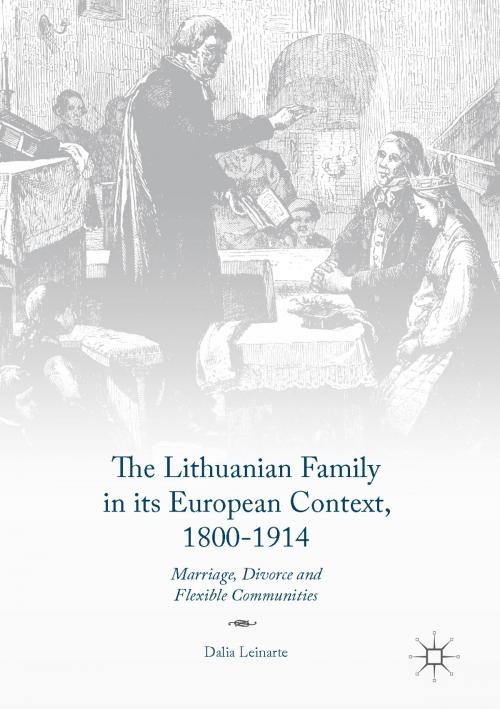The Lithuanian Family in its European Context, 1800-1914
Marriage, Divorce and Flexible Communities
Nonfiction, History, Asian, Russia, Social & Cultural Studies, Social Science, Gender Studies| Author: | Dalia Leinarte | ISBN: | 9783319510828 |
| Publisher: | Springer International Publishing | Publication: | June 8, 2017 |
| Imprint: | Palgrave Macmillan | Language: | English |
| Author: | Dalia Leinarte |
| ISBN: | 9783319510828 |
| Publisher: | Springer International Publishing |
| Publication: | June 8, 2017 |
| Imprint: | Palgrave Macmillan |
| Language: | English |
This book investigates marriage and divorce in the nineteenth-century European territories of the Russian Empire. It uncovers the way a peasant community employed unsanctioned marital behaviour, such as cohabitation and bigamy, among others, in order to respond to the external factors that had an impact on the family life, including transmission of inheritance and household structure. Lithuania was part of the Tsarist Empire until 1914. This case study reveals how under often restrictive laws and policies – serfdom up to 1861, and the pervasive role of the Church, in addition to deep-rooted customary practices – women and men manage to normalize their family life. The volume is based on a wide range of archival sources and uncovers familial behaviour both from an individual and community perspectives.
This book investigates marriage and divorce in the nineteenth-century European territories of the Russian Empire. It uncovers the way a peasant community employed unsanctioned marital behaviour, such as cohabitation and bigamy, among others, in order to respond to the external factors that had an impact on the family life, including transmission of inheritance and household structure. Lithuania was part of the Tsarist Empire until 1914. This case study reveals how under often restrictive laws and policies – serfdom up to 1861, and the pervasive role of the Church, in addition to deep-rooted customary practices – women and men manage to normalize their family life. The volume is based on a wide range of archival sources and uncovers familial behaviour both from an individual and community perspectives.















